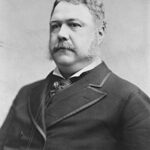President Chester A. Arthur’s administration marked a critical turning point in American civil rights. His failure to address Southern disenfranchisement effectively ended federal protection for African American voters. This decision abandoned the promises of Reconstruction.
Arthur’s Passive Approach to Southern Disenfranchisement
Arthur inherited a nation still healing from Civil War divisions. Southern states had begun implementing discriminatory voting laws targeting Black citizens. ⚠️ The President chose political reconciliation over civil rights enforcement. His administration refused to deploy federal troops to protect voting rights.
The Rise of Jim Crow Laws
During Arthur’s presidency, Southern legislatures accelerated their assault on Black voting rights. Poll taxes, literacy tests, and grandfather clauses spread across former Confederate states. 📊 Mississippi’s 1882 constitution became a model for voter suppression. Arthur’s Justice Department filed no significant challenges to these discriminatory laws.
Federal Enforcement Collapses
The Enforcement Acts of the 1870s had provided tools to combat Southern disenfranchisement. Arthur’s administration essentially abandoned these legal weapons. 💰 Political considerations outweighed constitutional obligations. Republican leaders prioritized economic issues over civil rights protection.
Impact:
Arthur’s inaction on Southern disenfranchisement created devastating long-term consequences for American democracy. The abandonment of federal voting rights enforcement reversed decades of civil rights progress.
Immediate Civil Rights Regression
🔥 Violence against Black voters escalated without federal intervention. The Ku Klux Klan and similar groups operated with virtual impunity. Southern disenfranchisement became systematic and widespread. African American political participation plummeted across the former Confederacy.
Constitutional Democracy Undermined
📉 Black voter registration fell dramatically in Southern states during Arthur’s term. Mississippi saw African American registration drop from 130,000 to 8,600 by 1892. Similar patterns emerged throughout the South. The Fifteenth Amendment became essentially meaningless in practice.
Decades of Oppression Enabled
Arthur’s failure established a precedent of federal non-interference in Southern voting practices. This policy vacuum lasted until the 1960s Civil Rights Movement. 🌍 International observers criticized America’s retreat from democratic principles. The credibility of American democracy suffered globally.
Economic and Social Consequences
Without political power, African Americans faced increased economic exploitation and social segregation. Jim Crow laws expanded beyond voting to encompass all aspects of Southern life. Educational opportunities diminished and economic advancement became nearly impossible for Black citizens.
